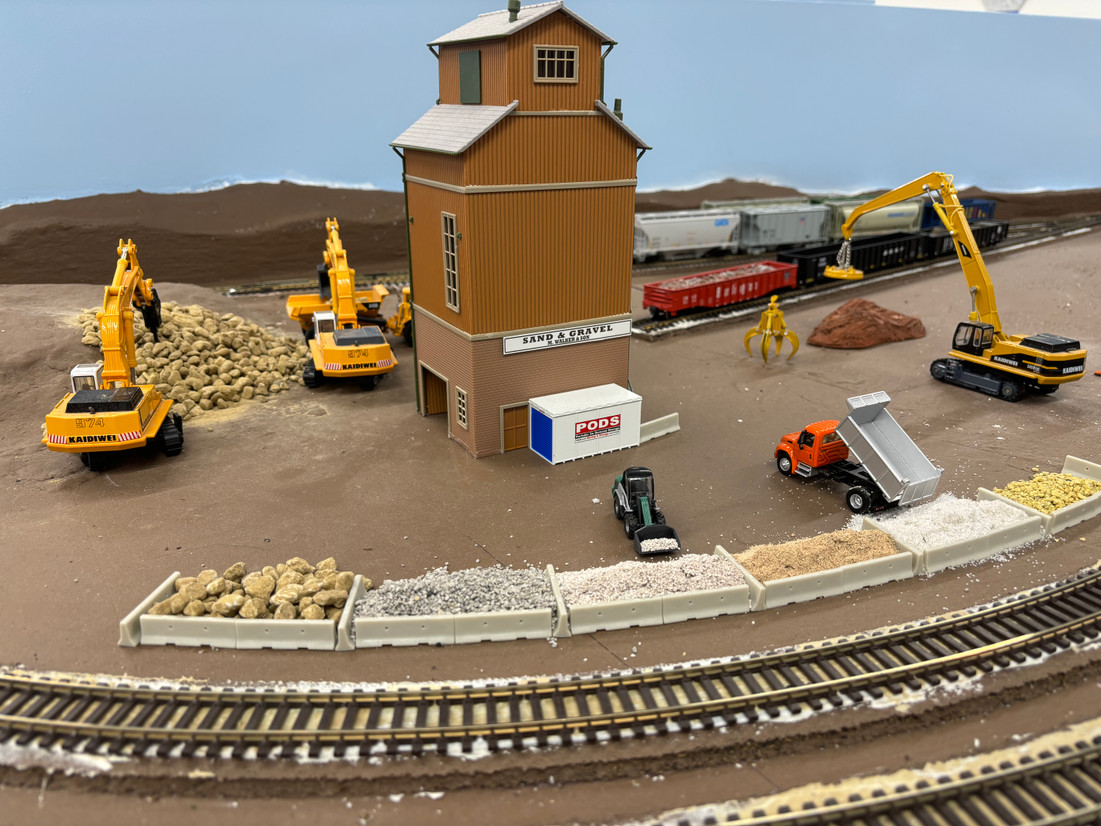All Aboard the Wisdom Express: Life Lessons from Model Railroading
Embarking on the journey of model railroading opens the door to a world where imagination meets precision, where history intersects with creativity, and where a passion for trains transcends the confines of reality. As model railroaders, we delve into a hobby that encompasses a multitude of skills and interests, from carpentry and electrical engineering to historical research and artistic expression. With each meticulously crafted layout and intricately detailed locomotive, we pay homage to the rich heritage of railroads while forging our own pathways of exploration and discovery. Joining this community of enthusiasts means embracing a hobby that not only challenges our technical abilities but also nourishes our sense of wonder and camaraderie. Welcome to the captivating realm of model railroading, where every journey begins with a single locomotive and endless possibilities await around every bend of the track.

Things You Will Learn as a Model Railroader:
- Patience is key, especially when it comes to intricate details and layouts.
- Precision matters - small measurements can make a big difference.
- Creativity flourishes as you design and build your layouts.
- Historical research becomes second nature as you recreate specific eras and locales.
- Electrical engineering skills are honed through wiring and powering layouts.
- Problem-solving skills are exercised when tracks don’t align or trains derail.
- Attention to detail is crucial for creating realistic scenery and structures.
- Organization is essential to keep track of parts, tools, and projects.
- Collaboration with other model railroaders fosters a sense of community and camaraderie.
- Resourcefulness is developed as you find innovative solutions for challenges.
- Carpentry skills are enhanced through building benchwork and platforms.
- Painting techniques improve as you weather and detail models.
- Time management is learned as you balance modeling with other responsibilities.
- Historical knowledge broadens as you study the evolution of railroads.
- Engineering principles are applied in designing layouts and solving technical issues.
- Spatial awareness improves as you visualize layouts in three dimensions.
- Mechanical aptitude is gained through assembling and maintaining locomotives and rolling stock.
- Financial management skills are practiced when budgeting for materials and equipment.
- Planning and organization are crucial for successful operating sessions.
- Problem-solving skills are tested when troubleshooting electrical and mechanical issues.
- Communication skills are developed through participating in model railroad clubs and forums.
- Artistic expression is fostered through creating scenic landscapes and backdrops.
- Historical appreciation grows as you learn about the role of railroads in shaping societies.
- Perseverance is cultivated as you tackle complex projects and overcome setbacks.
- Spatial reasoning improves as you plan and design layouts to fit within available space.
- Attention to safety is important when working with tools and electrical components.
- Critical thinking skills are sharpened as you evaluate different modeling techniques and approaches.
- Flexibility is necessary when adapting plans to fit changing circumstances or preferences.
- Knowledge of geography expands as you model specific regions and terrain features.
- Photography skills are developed as you document your models and layouts.
- Physics concepts are applied when considering factors like momentum and friction in train operations.
- Aesthetic appreciation grows as you admire the beauty of well-executed models and layouts.
- Cultural understanding deepens as you explore the history and significance of different railroads.
- Environmental awareness is fostered through the use of sustainable modeling practices.
- Attention to scale and proportion is crucial for creating realistic scenes.
- Research skills are honed as you gather information for prototype accuracy.
- Mechanical engineering principles are applied when designing and building rolling stock.
- Troubleshooting skills are refined as you diagnose and fix problems with equipment and layouts.
- Adaptability is important when incorporating new technologies and techniques into your modeling.
- Civic engagement may develop as you participate in local model railroad clubs or exhibitions.
- Community involvement increases as you share your hobby with others and participate in events.
- Leadership skills may be developed through organizing group projects or events within the hobby.
- Financial literacy improves as you manage expenses related to your hobby.
- Problem-solving skills are enhanced as you address challenges in layout design and construction.
- Time management skills are practiced as you balance modeling with other commitments.
- Creativity is stimulated as you develop unique scenic elements and layout designs.
- Historical knowledge is expanded as you learn about the development of railroads.
- Social skills are developed through interactions with other model railroaders.
- Technical skills are honed through tasks such as soldering and wiring.
- Satisfaction and pride are derived from seeing your vision come to life on your layout.
Recent Posts
-
Prototype Spotlight: GE ES44AC — Modeling a Modern Freight Workhorse
Prototype Spotlight: GE ES44AC — Modeling a Modern Freight Workhorse Published 2025-09-29• 8–10 min
-
How to Build a Realistic Freight Yard: Flow, Trackwork, and Car Management
How to Build a Realistic Freight Yard: Flow, Trackwork, and Car Management Published 2025-09-25 • 8
-
Scenery Basics: From Foam to Foliage — A Quick, Budget-Friendly Guide | Midwest Model Railroad
Modeling Tutorial Scenery Basics: From Foam to Foliage Published 2025-09-23 · 7–9 minute read Li




